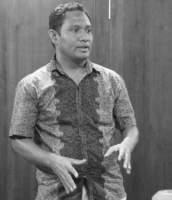- Forum
- categories
- Sanitation systems
- Water supply
- Groundwater (pollution, management, usage)
- Key documents for the sub-category on groundwater pollution (and protection)
Key documents for the sub-category on groundwater pollution (and protection)
13.8k views
- mmadrid
-
- Enviromental(ist) Practitioner: water quality, contaminated sites, toxic chemicals + environmental health & pollution
Less- Posts: 10
- Karma: 3
- Likes received: 6
Re: Key documents for the sub-category on groundwater pollution (and protection)
Please find below the link to the version 2 of the “GUIDANCE DOCUMENT FOR DETERMINING GROUND WATER AT RISK OF CONTAINING PATHOGENS (GARP)”, Released in November 2015 by the Ministry of Health of British Columbia (BC) in Canada.
www2.gov.bc.ca/assets/gov/environment/ai..._dec1_2015_final.pdf
Cheers!
Miguel
Please Log in to join the conversation.
You need to login to reply- YoviToni
-
 Less
Less- Posts: 6
- Karma: 1
- Likes received: 2
Re: Key documents for the sub-category on groundwater pollution (and protection)
In my perspective as newcomer in this forum, the all resources are more than enough to have basic understanding on the issues, about how our groundwater is susceptible to contaminant, how to mitigate the occurrence, how to provide a protection, and how to deal with contaminated groundwater.
As the complexity of the causes eg. septic tank leakages or contaminated surface water, combining with the soil properties, hydrogeology, in which beyond our control, we oftentimes neglect those information when design the water treatment, mainly for small capacity. We mostly rely our consideration on the raw water characteristics, chemically, physically and microbiologically regardless the origin of contaminants when choose proper treatment method.
Thus, the lists here are very helpful for us.
Thank you,
Yovianus Toni
Please Log in to join the conversation.
You need to login to replyRe: Key documents for the sub-category on groundwater pollution (and protection)
Am sorry I inadvertently omitted a short report. Kindly find it enclosed in the attachment.
Best regards / Mwaniki
Please log in or register to see it.
This message has an attachment file.
Please log in or register to see it.
Please Log in to join the conversation.
You need to login to replyRe: Key documents for the sub-category on groundwater pollution (and protection)
It's nice to hear from you once again.
As you may know,we have permissions to reprint material from various organizations.Parts of the groundwater pollution from UN Water have appeared in various editions of the Africa Water, Sanitation & Hygiene but I thought it would be helpful if I send you the sources instead of piecemeal reports.
Please log in or register to see it.
Please log in or register to see it.
Please log in or register to see it.
Please log in or register to see it.
Please log in or register to see it.
Please log in or register to see it.
Kindly find pdf editions enclosed in the attachments.
Best regards Mwaniki
This message has attachments files.
Please log in or register to see it.
Please Log in to join the conversation.
You need to login to reply- poorpeople123
-
- Mr. Rijal is a Master in Ecology and Environment Science (M.Sc) form Sikkim Manipal University, Sikkim India. Besides this, his non-academic course national and international (training) relates project management for non-state actors in development sector. Mr. Rijal has good exposure in promoting human ecology and natural resources. He loves youth
Less- Posts: 4
- Likes received: 1
Re: Key documents for the sub-category on groundwater pollution (and protection)
Sincerely, Nagendra Prasad Rijal
Please Log in to join the conversation.
You need to login to replyRe: Key documents for the sub-category on groundwater pollution (and protection)
pawan
Chairman
Foundation for Environment and Sanitation
Mahavir Enclave
New Delhi 110045, India
Web: www.foundation4es.org
Linked: linkedin.com/in/drpkjha
This message has attachments files.
Please log in or register to see it.
Please Log in to join the conversation.
You need to login to reply- mmadrid
-
- Enviromental(ist) Practitioner: water quality, contaminated sites, toxic chemicals + environmental health & pollution
Less- Posts: 10
- Karma: 3
- Likes received: 6
Re: Key documents for the sub-category on groundwater pollution (and protection)
Even though this is not one of the top fundamental documents, I do want to share this report to the SA WRC that came out this year. Just one more recent (May 2015) reference to close 2015:
Investigation into pollution from on-site dry sanitation systems
Lorentz S; Wickham B; Still D.
University of KwaZuIu-Natal; Partners in Development
www.wrc.org.za/Pages/DisplayItem.aspx?It...+systems%26start%3D1
Cheers,
Miguel
Please Log in to join the conversation.
You need to login to reply- kanalwolf
-

- Leif Wolf - Program Manager - Background: Hydrogeology and Integrated Water Management
Less- Posts: 15
- Karma: 1
- Likes received: 5
Re: Key documents for the sub-category on groundwater pollution (and protection)
WG11 Overview Factsheet: "Sustainable sanitation and groundwater protection"
Nick, A., Foppen, J. W., Kulabako, R., Lo, D., Samwel, M., Wagner, F., Wolf, L. (2012). Sustainable sanitation and groundwater protection - Factsheet of Working Group 11. Sustainable Sanitation Alliance (SuSanA)
www.susana.org/en/resources/library/deta...s/library/details/98
Krishnan, S. (2011). On-site Sanitation and Groundwater Contamination: A Policy and Technical Review. INREM Foundation, India
www.susana.org/en/resources/library/details/1748
This document is accompanied by a tool:
docs.google.com/spreadsheets/d/1V2L7TTF1...S&pref=2&pli=1#gid=1
But I urge you to be careful with using it since there is some not well defined usage of hydraulic gradient and hydraulic conductivity terms which migth be different in other contexts.
(note by editor: the second document has now been included in the list of Top-5)
Regards,
Leif
Dr Leif Wolf
Co-Lead of Susana Working Group 11 : Sanitation & Groundwater Protection
Program Manager at PTKA
www.researchgate.net/profile/Leif_Wolf/
Please Log in to join the conversation.
You need to login to reply- Elisabeth
-
Topic Author
- User is blocked
- Freelance consultant since 2012
Less- Posts: 3372
- Karma: 54
- Likes received: 932
Key documents for the sub-category on groundwater pollution (and protection)
forum.susana.org/forum/categories/10-gen...d-sub-category-level
++++++++++++++
This is a "sticky post" which means it will always remain at the top of this sub-category.
It contains a recommendation for new people regarding the most important five documents in the thematic area of "groundwater pollution (and protection)".
The selection of documents is based on an e-mail exchange with the two leads of SuSanA Working Group 11 on groundwater pollution and protection, Leif Wolf and Andrea Nick.
We are open to feedback if others think that another document should be selected here.
Recommended top five documents in the thematic area of "groundwater pollution (and protection)", in reverse chronological order:
(1)
Wolf, L., Nick, A., Cronin, A. (2015). How to keep your groundwater drinkable: Safer siting of sanitation systems - Working Group 11 Publication. Sustainable Sanitation Alliance
www.susana.org/en/resources/library/details/2155
This document serves as an introduction to the criteria for siting sanitation systems in order to reduce the risk of adversely affecting groundwater quality. The passage of water through the subsurface provides a reliable natural barrier to contamination but one that only works under favorable conditions. Once pathogens have infiltrated into the groundwater, e.g. through open defecation, manure heaps, pit latrines, leaking sewerage systems or over-irrigation with untreated wastewater, it may take varying amounts of time for the different types of pathogens to die off, during which they can reach a water source.
(2)
Graham, J.P., Polizzotto, M.L. (2013). Pit Latrines and Their Impacts on Groundwater Quality: A Systematic Review. Environmental Health Perspectives, 121: 521–530 (doi:10.1289/ehp.1206028)
www.susana.org/en/resources/library/details/2476 or: ehp.niehs.nih.gov/wp-content/uploads/121/5/ehp.1206028.pdf
Pit latrines are one of the most common human excreta disposal systems in low-income countries, and their use is on the rise as countries aim to meet the sanitation-related target of the Millennium Development Goals. This review calculates global pit latrine coverage, systematically scans empirical studies of the impacts of pit latrines on groundwater quality, evaluates latrine siting standards, and identifies knowledge gaps regarding the potential for and consequences of groundwater contamination by latrines.
(3)
Krishnan, S. (2011). On-site Sanitation and Groundwater Contamination: A Policy and Technical Review. INREM Foundation, India
www.susana.org/en/resources/library/details/1748
This document is accompanied by a tool:The objective of this report is to first provide ways of assessing this threat of contamination to groundwater and practical means of evaluating future vulnerability at the design stage itself. The report also looks at options for adaptation with such threat especially in dense habitations where both on-site sanitation and drinking water facilities are spaced very closely. The presented “Policy Review” and “Technical Review” parts of this report attends to the needs of planners, aid agencies, researchers and practitioners to unravel through the mesh of this question and find reasonable solutions that can make headway. Presented also is a simple spreadsheet tool that summarizes the learnings and offers a method to assess vulnerability and compare alternatives.
docs.google.com/spreadsheets/d/1V2L7TTF1...S&pref=2&pli=1#gid=1
Comment by Leif Wolf: "I urge you to be careful with using it since there is some not well defined usage of hydraulic gradient and hydraulic conductivity terms which migth be different in other contexts."
(4)
Moore, C., Nokes, C., Loe, B., Close, M., Pang, L., Smith, V., Osbaldiston, S. (2010). Guidelines for separation distances based on virus transport between on-site domestic wastewater systems and wells. Environmental Science and Research Limited, Porirua, New Zealand
www.susana.org/en/resources/library/details/2477 or: www.envirolink.govt.nz/PageFiles/31/Guid...virus_transport_.pdf
Separation distances between wastewater discharges and groundwater abstractions must be established to reduce the likelihood of contamination. Separation requirements can be based on the transport of bacteria, some regional councils work with uncertain scientific bases, and yet others have no separation requirements. Importantly, none of the existing separation distances allow for the influence of different subsurface materials on the transportation of viruses through the ground.
(5)
ARGOSS (2001). Guidelines for assessing the risk to groundwater from on-site sanitation. NERC, British Geological Survey Commissioned Report, CR/01/142, UK
www.susana.org/en/resources/library/details/1926
Guidelines for Assessing the Risk to Groundwater from On–Site Sanitation (ARGOSS) were developed to provide guidance on how to assess and reduce the risk of contamination of groundwater supplies from on–site sanitation systems and are aimed at those responsible for planning low cost water supply and sanitation schemes.
You can find further important documents and website links dealing with this topic here:
- Documents in SuSanA library: Filter by Working Group 11 which brings up these documents here .
- World Health Organization:
- Water safety plans: Managing drinking-water quality from catchment to consumer: www.who.int/water_sanitation_health/dwq/wsp0506/en/
- WHO and IWA (2015). A practical guide to auditing water safety plans. World Health Organization, Geneva, Switzerland, IWA - international water association, London, UK
www.who.int/water_sanitation_health/dwq/audit-for-wsp.pdf?ua=1
- Groundwater protection zones: www.who.int/water_sanitation_health/reso...en/groundwater17.pdf
- Environment Agency of England and Wales: Groundwater Source Protection Zones – Review of Methods: www.gov.uk/government/uploads/system/upl...scho0309bpsf-e-e.pdf
- UPGro: Unlocking the Potential for Groundwater for the Poor (international research programme): upgro.org/
- Groundwater-related projects by BGR, the Bundesanstalt für Geowissenschaften und Rohstoffe (Institute for Geosciences and Natural Resources in the following countries (click on the country to access the project's website): Zambia , Cameroon , Lebanon , and Afghanistan (Kabul) .
- Wikipedia article on groundwater pollution: en.wikipedia.org/wiki/Groundwater_pollution
Regards,
Elisabeth
Freelance consultant on environmental and climate projects
Please Log in to join the conversation.
You need to login to reply- Forum
- categories
- Sanitation systems
- Water supply
- Groundwater (pollution, management, usage)
- Key documents for the sub-category on groundwater pollution (and protection)








